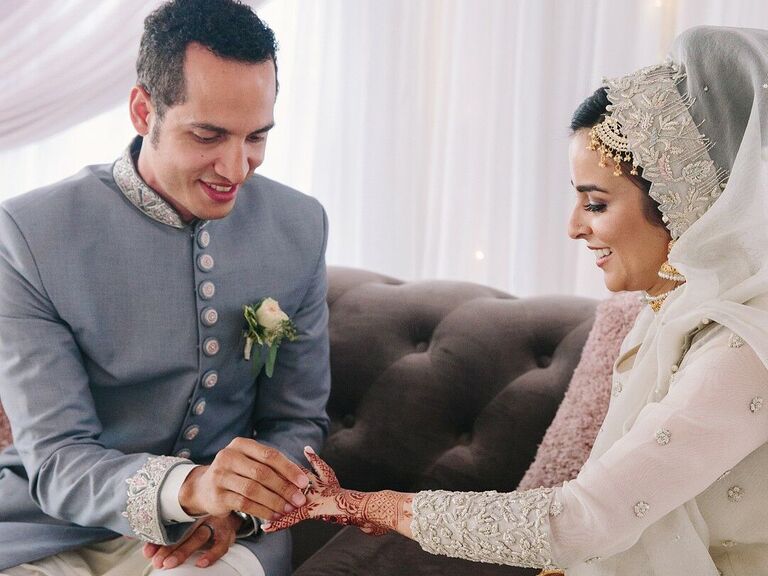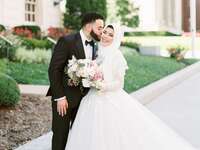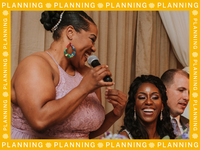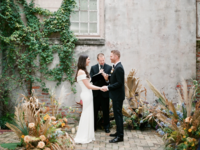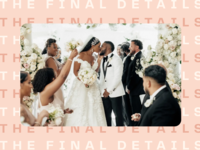Everything You Need to Know About Muslim Wedding Vows
If you've already started planning your Muslim wedding ceremony, then you might know that in a traditional Muslim wedding the couple actually doesn't exchange vows. During a Muslim wedding ceremony, called a Nikah ceremony, the imam, cleric, or other Muslim officiant will typically read verses from the Quran and perhaps give a sermon relevant to the topic of marriage. Muslim couples primarily play a listening role. The main requirement at the Nikah ceremony, which may take place at a mosque, wedding venue, or the home of the bride, traditionally, is that the couple and two male witnesses sign the Nikah, which is the Muslim marriage contract.
While vows aren't traditionally exchanged at a Muslim wedding, today, some couples (especially those who hail from different cultures or faiths) do choose to incorporate an exchange of marriage vows on their wedding day anyway. And provided that you run the inclusion of some form of vows by your officiant during your wedding planning talks, there's nothing wrong with doing so.
What to Include in Your Muslim Wedding Vows
In some religions, vows are at the heart of nuptial affairs. At the core of a Muslim wedding, however, is the Nikah ceremony. During this Muslim wedding ceremony the bride and groom convey their willingness and desire to marry by being asked three times if they accept each other as husband and wife and agree to the terms of the marriage contract. Each time they respond "qabul," which means "I accept" in Arabic. After this, the couple and two chosen male witnesses will sign the Nikah—the marriage contract—to make it official in the eyes of Allah, who is the one and only God in Islam. Following the signing, the officiant may also recite from the Quran and share blessings for the bride and groom.


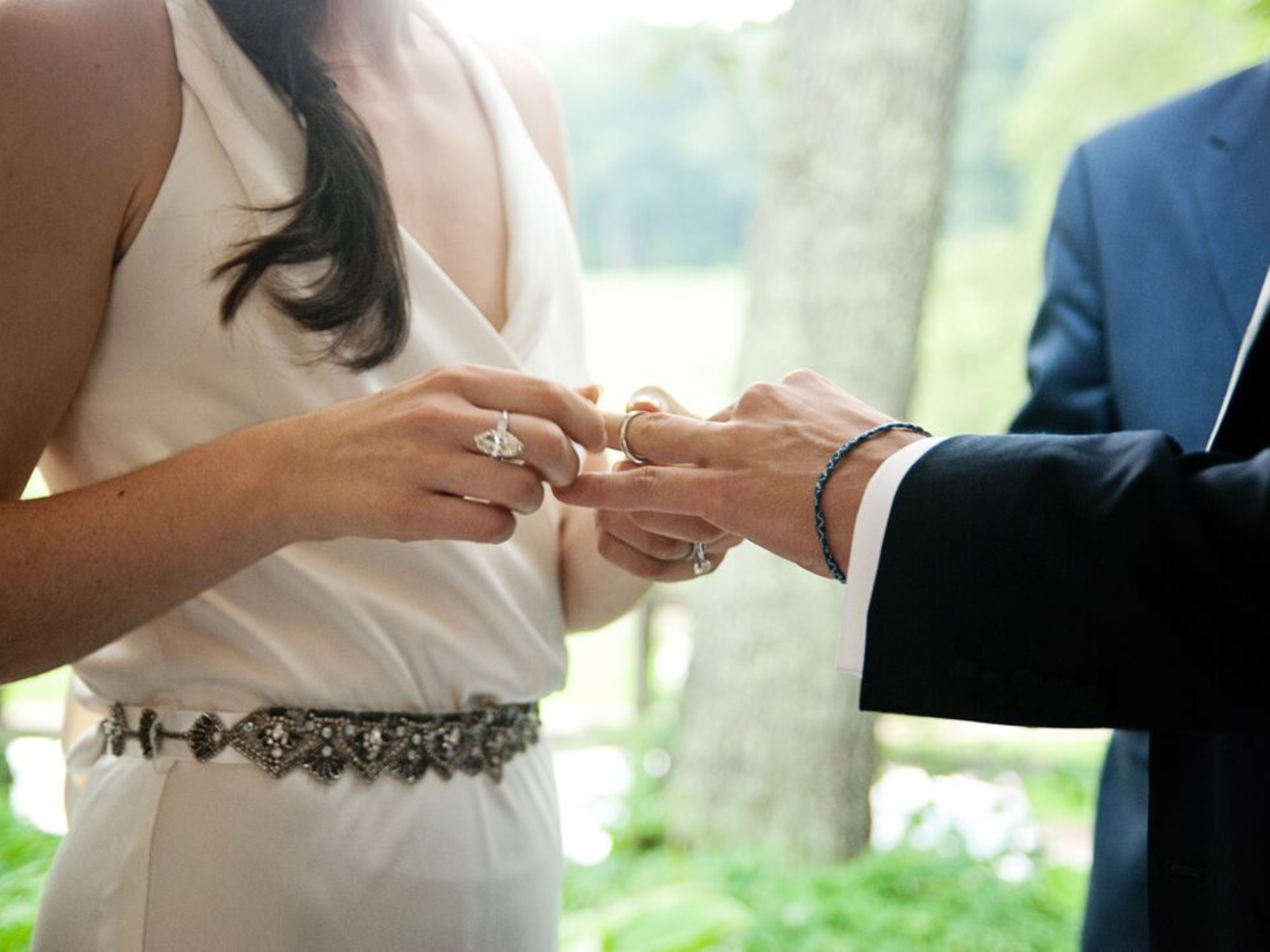
Traditional Muslim Wedding Vows Template
While there are no traditional wedding vows at a Muslim ceremony, if you want to incorporate wedding vows and your officiant permits it, then that's the only go-ahead you need. Since there isn't a standard example to follow for vows at a Muslim wedding like there are for Catholic wedding vows or Jewish wedding vows, you might consider writing your own wedding vows. Alternatively, some Muslim brides and grooms choose to include the following phrasing:
I, [bride's name], offer you myself in marriage in accordance with the instructions of the Holy Quran and the Holy Prophet, peace and blessing be upon him. I pledge, in honesty and with sincerity, to be for you an obedient and faithful wife.
I , [groom's name] pledge, in honesty and sincerity, to be for you a faithful and helpful husband.
Personalizing Muslim Wedding Vows
Since vows aren't a traditional part of a Muslim marriage ceremony, as long as your officiant allows you to incorporate them, you'll likely have plenty of room to personalize your wedding vows as you wish. It's a great way to create your own wedding tradition and share more about your relationship with loved ones. Writing your own wedding vows might be as simple as exchanging a few promises and saying "I love you," or you can incorporate a few anecdotes or love quotes, too.
